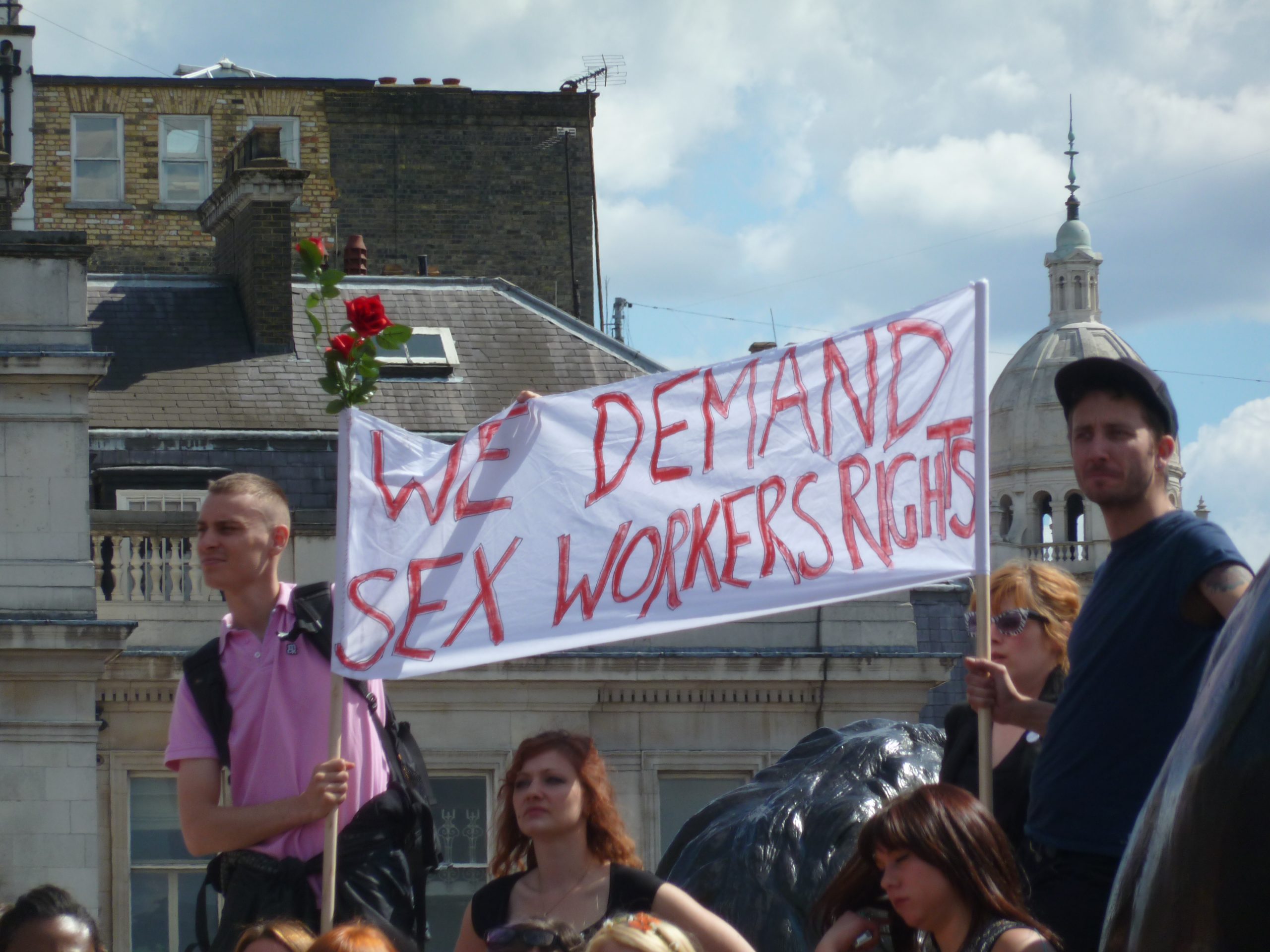Warning: This article contains mentions of graphic violence.
‘The murder of a sex worker is the grim but obvious result of a law that disregards the voices and safety of sex workers’, said the Sex Workers Alliance Ireland (SWAI), responding to the murder of 26-year-old Romanian sex worker, Gaila Ibram, on April 4th. Ibram was fatally stabbed in an apartment in Limerick, just three weeks after her arrival in Ireland. Furthermore, Irish sex workers are not surprised. ‘We told you this would happen,’ said SWAI, in the same statement. ‘When [Irish sex work legislation] was being debated in 2015 and 2016, sex workers and allies warned that the [proposed] law would increase violence against sex workers.’ And they were right.
Since 2017, Ireland has mirrored the ‘Nordic Model’ for sex work legislation, which criminalises clients and third parties (managers, drivers, landlords), but ostensibly decriminalises workers. Unfortunately, as Ibram’s death highlights, this model endangers sex workers. SWAI say that clients being criminalised means ‘the industry is pushed underground, away from services that can help a worker in an exploitative situation’.
When clients are criminalised, they become harder to find, meaning sex workers need to work longer hours for the same income. Clients that remain visible likely have less to lose from a run-in with police, and thus, are more likely to have a violent criminal past. Criminalised clients are more likely to want to operate in secluded spots, with lone workers less likely to draw police attention, placing those workers in danger. Less clients mean workers are more desperate, which gives clients all the bargaining power and forces workers to compromise on their terms to get business. Finally, workers often take clients’ personal details to screen them for safety among their colleagues. A criminalised client will not give out his details.
…50% of sex workers did not know their rights, and some had fallen victim to officers manipulating legal information
And it is not just clients who sex workers under the Nordic model must fear. Although workers are decriminalised, the 2022 ‘I Must Be Some Person’ report, found that, in Ireland, 80% of workers interviewed remained overpoliced. It found that 50% of sex workers did not know their rights, and some had fallen victim to officers manipulating legal information. It reported a ‘pattern’ of gardaí seeking to avail of sex workers’ services, and of female gardaí shaming sex workers for their choices. Its most common finding, however, was problems with Irish ‘brothel-keeping laws’, wherein Ireland fails to distinguish between coerced and consensual brothels.
‘Brothel-keeping’ in Ireland is defined as two or more sex workers living together, whereby each is seen as a third-party aid to the other. It is often desirable for sex workers to live with other sex workers. Having a friend in the next room when one is working is a good way to protect against abusive clients, and can directly prevent the murder of sex workers. ‘Everywhere the so-called Nordic model has been passed, sex workers have been murdered,’ said SWAI’s statement. ‘It has happened in France, it has happened in Sweden, and now it has happened here.’ The alternative for which they call is full decriminalisation, but there is much confusion in the general public about how this looks.
Legalisation means that sex work is legal under certain conditions, but, by default, the sex worker remains criminalised, and can only escape this by jumping several hurdles
Contrary to popular belief, this is not the model in the Netherlands and Germany, which is called ‘legalisation’. Legalisation means that sex work is legal under certain conditions, but, by default, the sex worker remains criminalised, and can only escape this by jumping several hurdles. Furthermore, these hurdles are only accessible to the most privileged sex workers, making the already vulnerable even moreso. To become decriminalised under this model, one must have a licence, which requires good knowledge of a country’s native language, and the ability to navigate vast bureaucracies. One must also only work within certain zones, which tend to be urban and expensive to live in or to access via commuting. Working in those areas is more expensive still. For example, rent in a window in the Red Light District can be €80-160 per shift, payable in advance. Mandatory STI testing needed to maintain a licence can deter people from getting tested, due to fear of losing said licence. In addition, regular drug testing means that sex workers with addiction problems cannot escape criminalisation. To the most vulnerable workers, legalisation equates to criminalisation.
By contrast, under full decriminalisation (active in only a single European country, Belgium), sex work and all peripheral activities are decriminalised, which provides a much greater base of physical safety for workers. There are light regulations, however, these should be implemented only with sex worker collaboration, to guarantee that they are geared solely towards protecting them. For example, sex workers in New Zealand, whose decriminalisation laws were implemented in conjunction with the New Zealand Collective of Prostitutes, can leave sex work and immediately access social security with no penalty for having ‘voluntarily’ left their job. They also fall within labour law and have workers’ rights. Most importantly though, they can live and work together, which will reduce the likelihood of fatal violent attacks.
Of course, those who advocate for the Nordic model see it as protective of workers in the long-run, curbing demand to end supply, eventually causing the death of the industry. However, as UK sex workers Mac and Smith write, there will be no end to sex work when factors persist which make sex workers vulnerable. The only way to end sex work is to give vulnerable women more supports. The Nordic model only serves to take supports away. Ibram has not been the first to be affected by this, but we must work to ensure she is the last.






